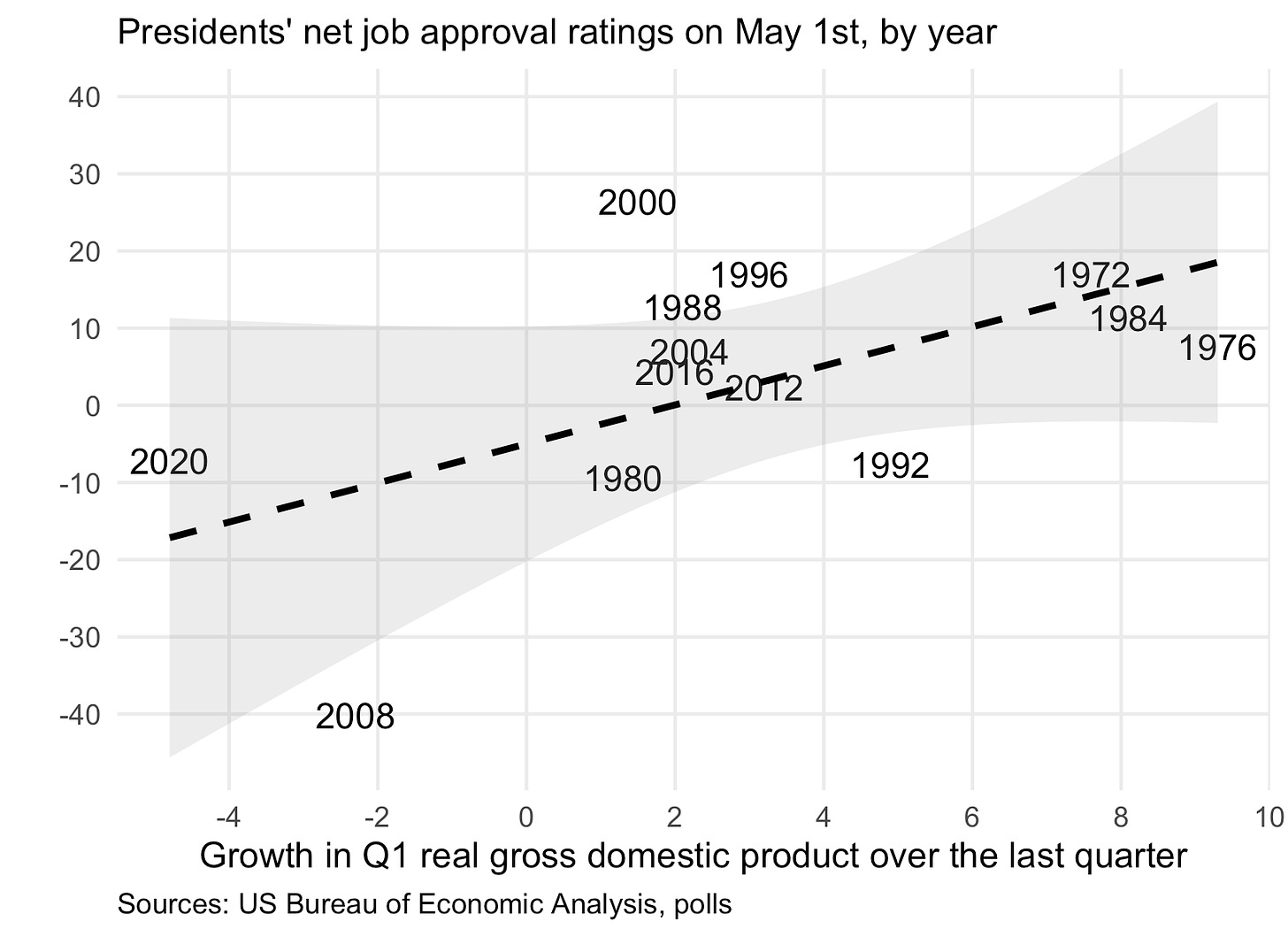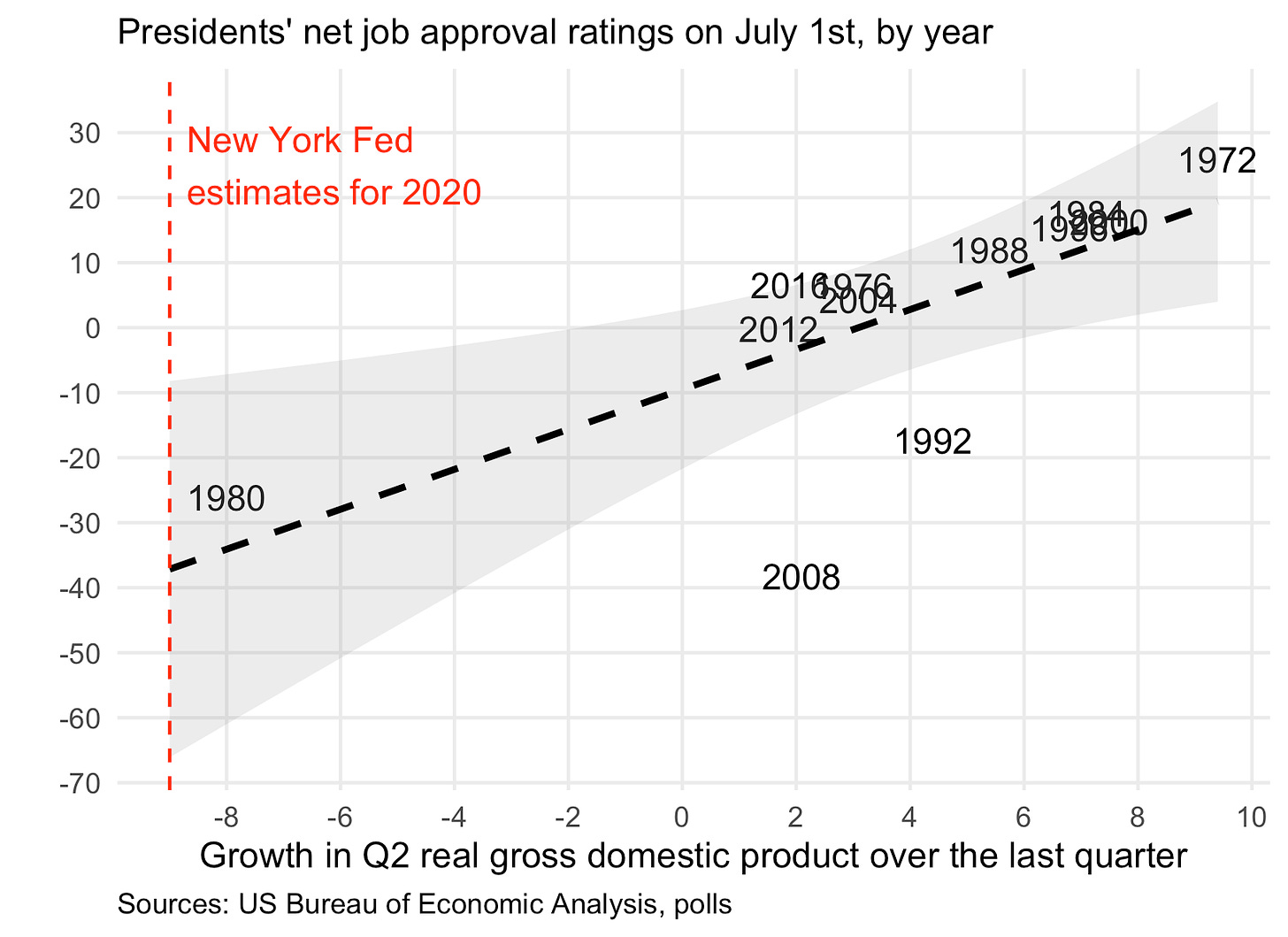Trump is shielded from, but not immune to, a bad economy
Donald Trump's popularity has held steady while the economy has crashed
A Happy Saturday afternoon to my subscribers.
I wanted to revisit the subject of presidential approval and the state of the economy today. Donald Trump’s presidency has prompted a very important question for political scientists over the past 4 years: is Trump immune to a bad economy?
There are reasons to think he might be. For most of his tenure as president so far, we have observed that Donald Trump’s approval ratings were much lower than expected for a president with such a strong economy—or, at least, with such ratings from consumers.
The logical extension of this finding is that an economic recession also wouldn’t hurt him that much. Until recently, we had no such recession to test this hypothesis against. Needless to say, now we do.
This week, the US Bureau of Economy Analysis released its advanced estimates for growth in the real gross domestic product for quarter one of 2020. Unsurprisingly, the projection was of a sharp contraction in the economy over the last several months. America’s GDP shrank by 4.8% compared to the final quarter of 2019, the BEA says.
Although the president’s approval rating is bad, it is not as low as we would expect given the BEA’s numbers. Trump is currently “just” 7 points underwater in my analysis of polls from Gallup, the Pew Research Center and ABC News/The Washington Post (chosen because they have a robust historical record to compared past years against). But if the past relationship between Q1 growth and evaluations of the president was holding up properly his net approval should be closer to -17.

The question of whether Trump will be hurt by the economy is ultimately one about his electoral fortunes. Will voters punish him at the ballot box or not? Political scientists have devised some models that attempt to answer this question, but most are run on observed second-quarter GDP growth over the last year, not quarter one. We can try to think ahead to what the political environment will look like when they run these models if the relationship between the economy and presidential approval holds up for Trump next quarter.
Based on the historical relationship between quarter-on-quarter GDP growth in the second quarter (July) of the election year and presidential approval, we should expect Trump to be about 40 percentage points underwater on approval by July if the economy shrinks by an additional 9 points over the next two months, as the New York Fed’s estimates currently suggest.

Trump would surely lose his re-election bid if he were underwater by such a large margin. But the confidence interval on this model coverage quite a large range of outcomes for presidential approval in July. Even at a 9% contraction, Trump could be underwater by only 10 points come July—precisely his rating in FiveThirtyEight’s tracker today.
That he’s beating his predicted -17 net approval rating suggests that Trump will be at least partly shielded from the economic fallout caused by covid-19. But since his rating is not entirely outside the confidence intervals of our models, we cannot conclude that he will be immune from them. One thing is for sure: if voters thought about President Trump similar to how they did about his predecessors, he would be much less popular than he is today. But I don’t think I needed a model to tell you that.



